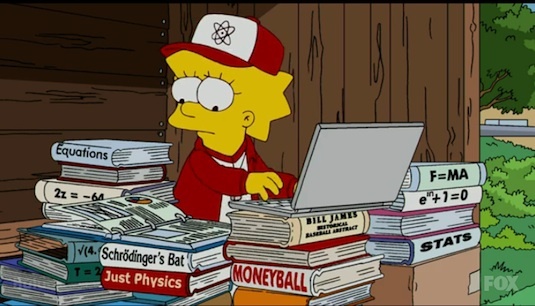STEM Hiring Managers Often Favor Male Candidates, Says Yet Another Study

Sigh.
These findings aren’t groundbreaking, but they shine more light on a very real problem: Hiring managers, both men and women, often perceive male candidates to be better qualified for science and tech jobs, even when their actual on-paper qualifications say otherwise. Fixing the STEM gender gap isn’t just about encouraging interested students — it’s about making sure those students can get jobs one day.
The study in question is “How Stereotypes Impair Women’s Careers in Science,” published earlier this week in the Proceedings of the National Academy of Sciences. Access to the full study requires a subscription, but lead author Ernesto Reuben summed up the nuts and bolts in a press release posted by the Columbia School of Business. Subjects were asked to “hire” candidates to perform mathematical tasks. In the first version of the experiment, the subjects were given no information about their candidates other than their gender. Predictably, male candidates were twice as likely to be chosen. This result remained the same even when the candidates told the subjects how well they would perform (as one might in an interview). The disparity lessened when subjects were given information on how well the candidates had completed a standardized arithmetic assignment — but men were still favored (the study notes that male and female participants could perform this task equally well).
And in keeping with other studies, male subjects weren’t the only ones discriminating. Female subjects overlooked female candidates, too.
Reuben writes that these biases are not only detrimental to workplace diversity, but pose risks for companies who may not be hiring the best people for the job.
Studies that seek to answer why there are more men than women in STEM fields typically focus on women’s interests and choices. This may be important, but our experiments show that another culprit of this phenomenon is that hiring managers possess an extraordinary level of gender bias when making decisions and filling positions, often times choosing the less qualified male over a superiorly qualified female.
Studies like this are disheartening, but they’re crucial to understanding the problems that hold women back in traditionally male fields. Uprooting centuries of bias against women interested in math, science, and tech is a daunting task, but the better we recognize what we’re up against, the better our solutions will be.
(via EE Times)
- Astronaut Mae Jemison Talks Women In STEM
- “Where My Ladies At?” Asks The Brain Scoop
- The Behavior of Proteins, As Explained Through Interpretive Dance
Are you following The Mary Sue on Twitter, Facebook, Tumblr, Pinterest, & Google +?
Have a tip we should know? tips@themarysue.com